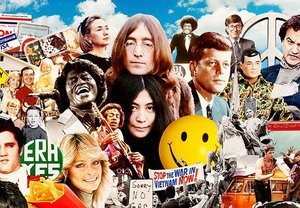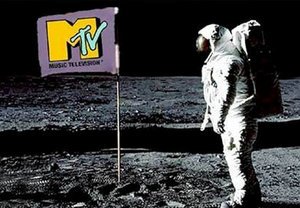When Can I Quit Being a Millennial (or a Boomer or a Gen-Xer)?
What box did you check when asked what generation you would like to be part of? You did that, right? Of course not, but perceptions of you will forever be based on the generation with which you are identified. How can you get past your label?
We have much in common with our cohorts; it’s tempting to label
People of all generations would say their generation is the best, and why? Because it’s the one they know and understand. Researchers and prognosticators are not far off base when they characterize and name specific groups based on a collection of birth years. Generational groups are large and members of each group will share many collective cultural and historical events.
Generational timelines vary, the below years are an average.
Baby Boomers
(Born 1943-1964) Vietnam (and the Beatles)
Generation X
(Born 1965-1979) Fall of the Berlin Wall (and MTV)
Millennial or Gen Y
(Born 1980-2000) 9/11 (and election of Barack Obama)
However, when you add one’s individual experiences of family, friends, ethnicity, religion, geography, and social mores to the mix, things get messy. As insights professionals, it is much easier to ignore these extra attributes in favor of adopting the official label and its characteristics. But what if the assumed generational characteristics are not true?
In a study published by EY (formerly Ernst & Young), insights from 1,200 cross-generational professionals revealed a few surprises. It was discovered that Boomers are team players and loyal, but they don’t like change; and Gen X-ers are entrepreneurial in thought and action, but rank low on executive presence.
The surprise was in the Millennial group. Those aforementioned researchers and prognosticators had theorized that Millennials would be great team players due to the collaborative environment in which they grew up; it turns out they are not. However, they are wicked good with technology and have little patience for systems and processes of the past.
Labels tend to stick, even when they’re wrong
Let’s look at the negative impact of generational labeling on Millennials…
We know the Millennial tribe has arrived, and it’s big. If the massive number of articles written on this group is an indicator; nobody seems to know what to do with them in the workplace. There are even management courses that outline “how to deal with Millennials,” yet no one seems interested in hearing what the Millennials have to say.
We hear from Millennials that assumptions made by co-workers or superiors are often based on something they have read; not on something they have experienced. Millennials may work hard to dispel the assumptions, but often they are not successful. The result? They tend to leave for greener pastures rather than stick around until things change.
So, where do we go from here?
It seems we need to dig deeper into this pattern of generational labeling
Every day there are opportunities to interact with people of various generations. When these people are in our sphere of family and friends, we know their backstory and can anticipate their actions and behavior. And what if they’re not in this circle? We judge.
Within 7 seconds we assess age, gender, ethnicity, and perhaps grooming habits, and BINGO! we think we know exactly who a person is. Applying generational characteristics to support our assumptions is handy. But if this is all the effort we put into getting to know someone, we are destined to not know them at all.
Generational labels (and biases) have become problematic in today’s workplace regardless of which group you are in. With three dominant generations actively working together at a wide range of levels, it’s easy to stereotype by generational labels.
For example, today’s workplace may have a young manager directing a division of seasoned employees. The young manager may feel results are more important than time spent in the office. Yet, he manages a group of workers who still think their productivity is measured by the number of hours spent at their desk. Neither is wrong because they are a product of their life experiences, and it will require a conscious effort to devise an approach for mutual understanding.
The antidote to judging and labeling others is empathy
Empathy is the ability to view a situation or condition through the other person’s eyes, to see something as they see it. Empathy is the foundation of clear communication and connection with others.
Ignite 360’s CEO, Rob Volpe points out that empathy is a skill that can be honed over time by anyone willing to try, and he outlines 5 steps to achieve greater empathy.
In the beginning, empathy may not be a two-way street, but it will provide an avenue for understanding. By asking good, open questions and actively listening to what people say, the process of empathy begins. It is an ongoing conversation of discovery through inhabiting another person’s world.
Taking this step with empathic intentions will eventually bear fruit for all. Empathy breaks down defenses, creating constructive dialogs that lead to stronger alliances at work. Eventually, this line of thinking and doing will flow into personal relationships as well. And who doesn’t want that?
Eliminating labels matters in the workplace and in the world of insights
We know that interactions with our co-workers and clients will improve when we apply the 5 steps to achieve empathy. What happens to those of us who go out into the world seeking insights for our clients? At Ignite 360 our clients are counting on us to find hidden gems, the insights that can help them enhance or re-envision how consumers see their products.
When designing research methods and strategies for our clients, we challenge ourselves to look beyond the existing data points so we can discover the why. Our clients’ business questions drive our project design so it’s important that we see their challenges from their perspective and not accept assumptions as answers.
Seek generational knowledge and avoid the labels
Employing empathy in the field as we search for insights is essential. As researchers, we want to know what makes a person do what they do. We want to understand the challenges, circumstances, and joys they experience in their daily lives. We want to know if their views have changed over time and why.
However, researchers are susceptible to generational biases just like everyone else. In the context of insights, it is important to understand generational knowledge, but not succumb to generational labels. We must consciously commit each day to push past these assumptions when we are in the field with our clients’ consumers to search for what influences their habits and what/when/how they change. Fortunately, our huge affinity for empathy guides us on our client journeys.
Applying empathy will surprise you – in a good way
Regardless of your generation, we all have the power to set ourselves apart from pre-existing labels. By looking for the true essence in others, our true essence will become visible as well.
How do you handle generational biases that take place in your workplace? Join the conversation on Facebook, LinkedIn, Twitter or Instagram.




